When people fill up their cars with gas, they try to get the best price. All the gas stations list their price for a litre of gas (gallon for Americans), which makes it very easy to compare unit prices. One litre of gas at gas station A is exactly the same as a litre of gas at gas station B.
For most other items, it’s not that simple. Grocery stores (or more accurately the food manufacturers that supply them) are the worst. They will shrink your favourite product, so you don’t even think to compare unit prices. They also like to put out an “economy size” which has a higher unit price.
Smart consumers cut through all the bull and compare the unit prices, so they know exactly how much they are paying.
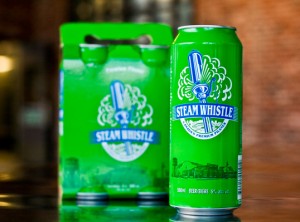
I can’t claim to be the smartest consumer, but I did feel duped the other day after buying some Steam Whistle, which is my favourite beer.
They used to just offer regular bottles (341 ml) and large cans (500 ml). It was obvious to me that the cans represented a much better deal. In fact, the cost for the bottled beer was $0.66 for 100 ml which is 25% more than the $0.53 for 100 ml of canned beer. A significant difference, I’d say.
Recently, I paid a visit to the local store and one of the clerks told me about a new six pack of cans from Steam Whistle. The case of six cans was $3.50 more than the cost of buying four separate cans, but she made it sound like the six pack was made up of the large cans. After buying the six pack, I realized that the cans were in fact, not large (500 ml), but disappointingly normal in size (355 ml) and I knew I’d been had.
Sure enough, the pricing for the small cans was $0.65/100 ml, which is just a bit less than the bottled price, but a whopping 23% more than the unit price of the large cans.
Conclusion
Don’t ever assume anything from anyone. If you want the best deal for an item, you have to understand the pricing and the sizes involved.
Steam Whistle is already one of the more expensive beers on the market – don’t make the same mistake I did and over pay for it!
Please note that I have subtracted the cost of the deposit, before calculating the unit beer costs.
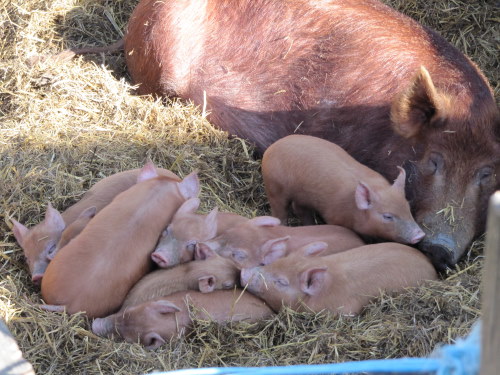
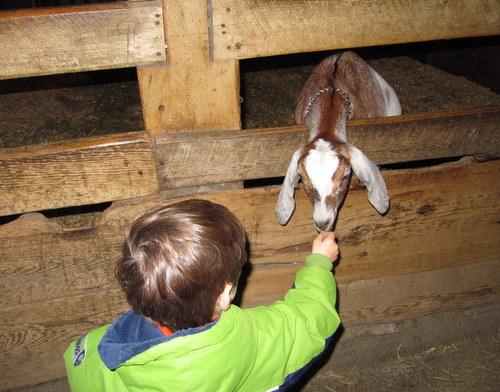
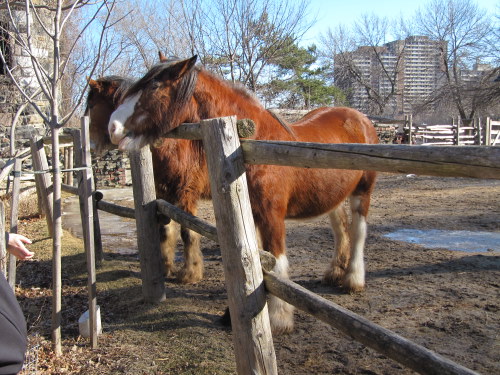

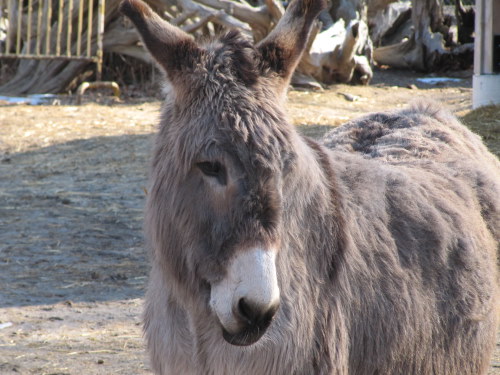


 A hug: The classic way t0 let someone know “I’m broke, but I care” a hug is perfect for all ages and both genders! As it’s most acceptable with older relatives, you can also push your luck and give this to siblings and friends. Add a kiss or other affectionate act and you can cross that “special someone” off of your list. Not recommended in work environments (especially with your boss).
A hug: The classic way t0 let someone know “I’m broke, but I care” a hug is perfect for all ages and both genders! As it’s most acceptable with older relatives, you can also push your luck and give this to siblings and friends. Add a kiss or other affectionate act and you can cross that “special someone” off of your list. Not recommended in work environments (especially with your boss).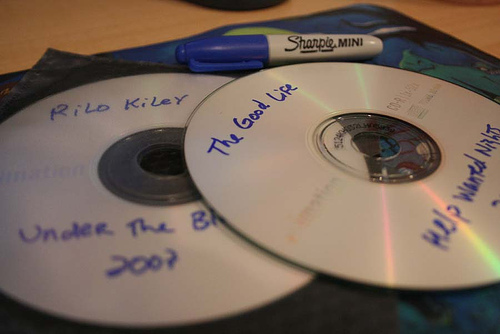 Burnt CDs / DVDs: Let people know that when you steal for them, you steal the best! Whether it be bootleg music, tv shows, movies, or even computer software this is the gift that says “I thought about something that would be perfect for you, then downloaded it off of the Internet and burnt it on a $0.10 bit of plastic instead of wasting money getting it at the store.” Edgy and “counter-culture” this tells everyone involved in the gift giving festivities that you’re a good looking rebel who plays by his (or her) own rules!
Burnt CDs / DVDs: Let people know that when you steal for them, you steal the best! Whether it be bootleg music, tv shows, movies, or even computer software this is the gift that says “I thought about something that would be perfect for you, then downloaded it off of the Internet and burnt it on a $0.10 bit of plastic instead of wasting money getting it at the store.” Edgy and “counter-culture” this tells everyone involved in the gift giving festivities that you’re a good looking rebel who plays by his (or her) own rules!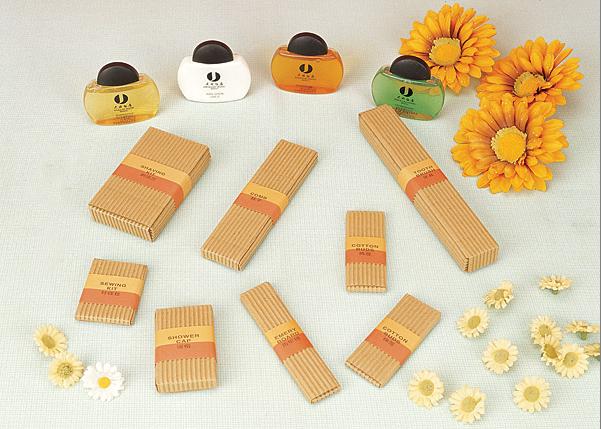 Home Made “Spa” Gift Basket: If you travel regularly (perhaps for business), collect the toiletries they give out free where you stay and make your own “Bed Bath and Beyond” style gift basket. These will be name brand products (just hotel chain names instead of cosmetic companies) at a fraction of the cost! If you don’t travel, perhaps you can ask a friend who does to collect these for you, then you’ll be well stocked for giving indulgence on a shoestring next year.
Home Made “Spa” Gift Basket: If you travel regularly (perhaps for business), collect the toiletries they give out free where you stay and make your own “Bed Bath and Beyond” style gift basket. These will be name brand products (just hotel chain names instead of cosmetic companies) at a fraction of the cost! If you don’t travel, perhaps you can ask a friend who does to collect these for you, then you’ll be well stocked for giving indulgence on a shoestring next year.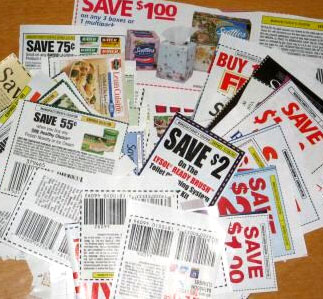 Home Made “Savings Book”: Fund raisers will often sell a book of coupons for samples and discounts at local businesses. If people will buy such a thing, it probably has value and can be given as a gift. And why buy it when you can make it yourself? Search through junk mail and store flyers to find as many coupons as you can. For each recipient, put coupons for things they use at the front (and bury expired coupons and things like “$0.10 off Bengay” near the middle where the recipient probably won’t notice them after receiving the book).
Home Made “Savings Book”: Fund raisers will often sell a book of coupons for samples and discounts at local businesses. If people will buy such a thing, it probably has value and can be given as a gift. And why buy it when you can make it yourself? Search through junk mail and store flyers to find as many coupons as you can. For each recipient, put coupons for things they use at the front (and bury expired coupons and things like “$0.10 off Bengay” near the middle where the recipient probably won’t notice them after receiving the book). Give Services You Already Provide: Every family has a natural “division of labour” where different members specialize in different jobs. Mom does the laundry, dad shovels snow and cuts the lawn, Johnny sets the timer on the VCR and provides tech support and Suzy makes baked treats. Instead of selflessly and freely giving these services to loved one, give them coupons to receive these services a set number of times in the coming year. This helps them appreciate what you do for them, prevents them from being too demanding, and makes them a little worried what will happen once the coupons are gone (“What Johnny, you don’t have any more ‘home cooked meal’ coupons? Guess you’ll be living off of microwave popcorn until next Christmas.”)
Give Services You Already Provide: Every family has a natural “division of labour” where different members specialize in different jobs. Mom does the laundry, dad shovels snow and cuts the lawn, Johnny sets the timer on the VCR and provides tech support and Suzy makes baked treats. Instead of selflessly and freely giving these services to loved one, give them coupons to receive these services a set number of times in the coming year. This helps them appreciate what you do for them, prevents them from being too demanding, and makes them a little worried what will happen once the coupons are gone (“What Johnny, you don’t have any more ‘home cooked meal’ coupons? Guess you’ll be living off of microwave popcorn until next Christmas.”)